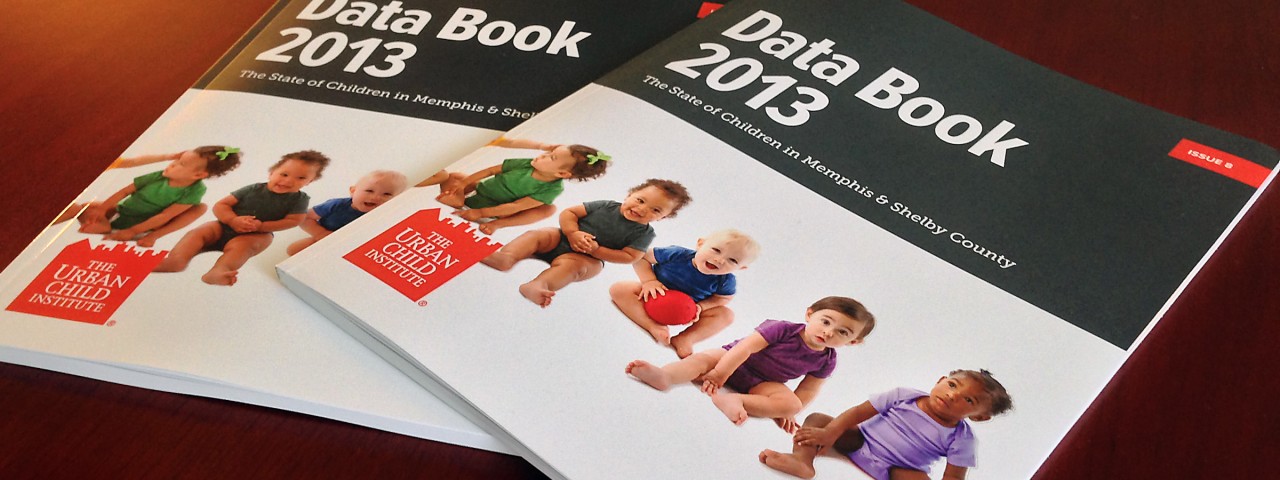Meet the People Behind the Data Book
- Tweet

We try to preserve the integrity of anything that comes out of the building so that we can always go back and defend it.
According to The Urban Child Institute, the brain development in children ages 0-3 is crucial for their success later on in life. But how do they know?
"One of the cornerstones of our Institute is being data-driven, and that's our team's responsibility," says Cate Joyce, Director of Data and Research. "Our department ensures that the work the Institute does is justified in the data and in the research and that these form the foundation of the argument we are trying to build."
This means days spent reading and synthesizing relevant research studies, analyzing the data they contain, and presenting that data in useful ways, including content for the website, single-subject reports, and written briefs. The department also conducts independent research, which is sometimes presented at academic conferences outside of the Institute.
"The idea behind those articles and presentations is to inform the scientific and medical community of what we see that has a research base of a large number of people," says Andy Bush, a resident fellow at UCI.
And as new research on all aspects of early childhood development — social, emotional, behavioral, and cognitive — is published on a regular basis, often from journals dedicated exclusively to the subject, keeping up-to-date is not an easy task.
"We've got to make sure we analyze each study and see what, if anything, we can base accurately on it" says Marc Goodman-Bryan. "We try to preserve the integrity of anything that comes out of the building so that we can always go back and defend it."
The annual Data Book is one of the Institute's projects that relies heavily on contributions from the department. A five-month process total — from gathering the data to final edits — the book serves a specific need in the community.
"We're trying to compile the best available data and research on early childhood as it relates to the children of Shelby County in one place," says Cate. "This way people who are interested — whether they're policy makers, health care providers, philanthropists or even parents — have one source where they can see information about what's going on in the community and what we can do about it."
While the Data Book has been produced since 2006, it will be more accessible this year than ever before. In addition to PDF and HTML versions on the website, it will also be available as an e-book. And for those who like to turn the pages themselves, hard copies are also available for purchase.
The Data Book serves as a way for the department to share its work with the community, but at other times, the contact is even more direct. Frequently, people will call to ask about research supporting a topic in which they're interested. And while those calling often include other non-profits and even the offices of county and city mayors, the information is available to all.
"Anyone who calls — if they're interested in early childhood and we have access to the information — we'll help" says Cate. "We work to be a trusted community partner so that people can rely on us for accurate information."
While its tasks vary — from analyzing research studies and compiling reports, to writing and editing the Data Book and answering specific questions from community members — the Department of Data and Research completes each in order to maintain the integrity of a data-driven organization. While the work is not always glamorous, it is essential.
"We're not a department that has a lot of flashy products," says Cate. "The main objective of our team is to ensure that UCI maintains a data-driven core and that the integrity of the research is upheld in all communication and dissemination efforts — it's something we have to churn on every single day."
